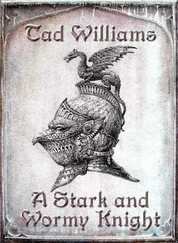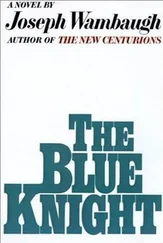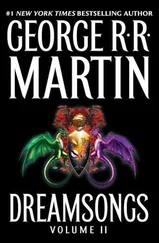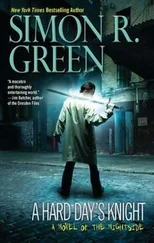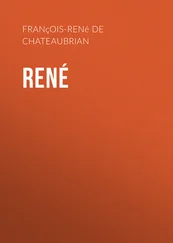It must have been nearly forty years since I had read those words. She had written the novel the summer before Jonathan was born. It was as if Nancy was in bed with me. I could hear her voice quite clearly: Nancy as a young woman, not yet a mother. There was energy in it, fearlessness, and it threw me back to a time when the future had excited us, when things that hadn’t happened yet thrilled rather than frightened. I was happy when I went to sleep that night appreciating that, even though she was no longer with me, I had been lucky to have had Nancy in my life. We had opened ourselves up to each other. We had shared everything. I thought we knew all there was to know about each other.
“Wait, I’ll come out with you,” Catherine calls from the top of the stairs.
Robert turns at the front door and looks up at her. “I’m sorry, sweetheart, did I wake you?”
She knew how hard he had tried not to. He had kept his shower short, tiptoed around while dressing, but Catherine had been awake the whole time. Lying there. Eyes half closed. Watching him and loving him for being so considerate. She had waited as long as she could but as soon as he left the room she had scrambled out of bed, dressed, then chased down after him. She couldn’t be alone yet, later maybe, but not yet.
She sits on the bottom stair, cramming her feet into trainers. “I’ve got a stinker of a head. Best thing to do is get out there and clear it,” she says, tying her laces with shaky fingers. She hears herself, sounding so normal, so plausible. Shaky fingers could be a hangover. She has taken the week off work to unpack and settle them in — to turn their new place into a home — but this morning she cannot face it. And it’s true, she does have a stinker of a head, but it’s not the result of last night’s celebrations. She sees Robert check his watch. He has to be in early.
“I’ll be quick, I’ll be quick,” she says, running into the kitchen, filling a bottle of water, grabbing her iPod, then running back to him. They slam the door shut, double-lock, and walk together to the tube. She reaches for his hand and holds it, and he looks at her and smiles.
“Was fun last night,” he says. “Did you get lots of nice emails?”
“A few,” she says, although she hadn’t bothered to check. It had been the last thing on her mind. She’ll have a look later, when she’s home, when her head is clearer. He pecks her on the cheek, tells her he shouldn’t be late home, hopes her head feels better, and then disappears into the underground. She turns round as soon as he has gone, sticking in her earbuds and running back up the road. Back the way they’d come, back towards the only green space in the area. Her feet slap in time to the music.
She passes the top of their road and keeps going. Her heart is thumping, sweat is already running down between her shoulder blades. She is not fit. She should really be doing a fast walk, not a run, but the discomfort of it is what she needs right now. She reaches the high, wrought-iron gates of the cemetery and runs through. She manages one circuit then stops, panting for breath, bending down and resting her hands on her knees. She should really stretch out but she feels too self-conscious. She is not an athlete, merely a woman on the run.
Keep going, keep going, and she straightens up and sets off again, a gentle jog now, not punishing, allowing thoughts to stir. As she reaches the halfway point she slows to a walk, but keeps it brisk, wanting her heart to stay strong, to keep pumping. Names float out to her from the gravestones: Gladys, Albert, Eleanor, names from long ago of people long dead. But it’s the children she notices. The children whose stones she stops to read. The beginnings and ends of their short lives. Doesn’t everyone do that? Stop at the graves of the children tucked up forever in their grassy beds? They take up less space than their grown-up neighbours and yet their presence is impossible to ignore, crying out to be looked at. Please stop for a moment. And she does. And she imagines a stone which could have been there, but isn’t. Nicholas Ravenscroft, born 14 January 1988, taken from us on 15 August 1993, the beloved son of Robert and Catherine. And she imagines how she would have been the one who would have had to tell Robert that Nicholas had died. And she hears his questions: Where were you? How could that have happened? How was it possible? And she would have burst open, poured everything out on to him and he would have sunk under the weight of it. She sees him struggle, pushing back against it, trying to raise his head above the deluge, gasping for air but never quite getting enough to make a full recovery. But Nicholas didn’t die, he is alive, and she didn’t have to tell Robert. They have all survived intact.
I woke the morning after reading A Special Kind of Friend refreshed. I was eager to start work and had planned to look through my notes then type them up. I knew there was some paper in the dresser cupboard; everything seemed to end up either on or in our dresser. I could picture the sheaf of paper sitting beneath the games of Scrabble and backgammon, but when I tried to pull it out, it wouldn’t come. It was trapped in the back of the dresser. A panel had been pushed in and I pressed against it, trying to release the paper, but it wouldn’t budge. Something was stuck between the dresser and the wall. I put my hand around the back and touched something soft. It was an old handbag of Nancy’s, a cunning one, which had managed to evade the trip to the charity shop.
I sat back against the wall, stretching my legs in front of me with the handbag on my lap. It was black suede with two pearl drops clasped around each other. I dusted it down and looked inside. There was a set of keys to Jonathan’s flat, a lipstick, and a handkerchief still pressed in a square where it had been ironed. I took the top off the lipstick and sniffed it. It had lost its scent but kept its angled shape from the years it had stroked Nancy’s lips. I held the hanky to my nose, and its perfume conjured up memories of evenings at the theatre. What I hadn’t expected to find was the yellow envelope of photographs with KODAK in thick black lettering on the front. This was a precious find and I wanted to make an occasion of it.
I made myself some coffee and settled down on the sofa, anticipating a flood of happy memories. I assumed the pictures were holiday snaps. I think I even hoped there might be a few of the Martello tower, that finding the handbag was Nancy’s way of helping me on with my project. In a way it was, but not the one I had had in mind that morning.
My head, which had been so clear at the start of the day, felt as if the contents of someone else’s had been dumped into it. I could no longer tell which thoughts were mine and which were theirs, which ones were true and which were lies. My coffee had gone cold; the pictures were spread out on my lap. I had expected images I recognised, but I had never seen these pictures before.
She was looking straight into the camera. Flirting? I think so. Yes, she was flirting. They were colour photos. Some were taken on a beach. She was lying there, a smiling sweetheart on holiday in a red bikini. Her breasts were pushed up as if she was some sort of pin-up girl and she certainly looked as if she thought herself a very desirable woman. Confident. Yes, that’s what it was. Sexual confidence. Others were taken in a hotel room. They were shameless. She was shameless. But I couldn’t look away. I could not stop looking. I went through them again and again, tormenting myself, and the more I looked the angrier I became because the more I looked, the more I understood.
Читать дальше





